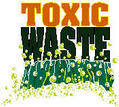| Wednesday, November 13, 2002 |
| The Intelligent Universe |
 Ray Kurzweil: "The universe has been set up in an exquisitely specific way so that evolution could produce the people that are sitting here today and we could use our intelligence to talk about the universe. We see a formidable power in the ability to use our minds and the tools we've created to gather evidence, to use our inferential abilities to develop theories, to test the theories, and to understand the universe at increasingly precise levels"... Ray Kurzweil: "The universe has been set up in an exquisitely specific way so that evolution could produce the people that are sitting here today and we could use our intelligence to talk about the universe. We see a formidable power in the ability to use our minds and the tools we've created to gather evidence, to use our inferential abilities to develop theories, to test the theories, and to understand the universe at increasingly precise levels"... [ Inspiration | 2002-11-13 23:36 | 3 comments | PermaLink ] More > |
| Laws of Self-Organization |
 Chris Corrigan provides some hints from Open Space Technology about how one might intentionally create the conditions for group/community formation, by invoking the laws of self-organization. Chris Corrigan provides some hints from Open Space Technology about how one might intentionally create the conditions for group/community formation, by invoking the laws of self-organization.
"[...] Stuart Kauffman distilled down those laws to these five conditions which need to be in place to invoke self-organizing systems: A nutrient environmentIn Open Space the nutrient environment is provided by a theme and an invitation that nurtures participation. Diversity and complexity is embodied by the invitation list and a complex organizing idea ("How do we form a community?" is a good question). A drive for improvement is the inherent passion that people bring to the work. Sparse connections mean that people come to an Open Space meeting without an agenda, and not knowing what will happen. This allows them to be free to establish the connections they need to make to create communities or groups. And finally activity at the edge of chaos finds its purest expression in the group of people all standing in front of the agenda wall searching for the conversations they want to have. It is out of the rolling and boiling chaos that order comes, as people settle into conversations and establish deep connections that lead to groups and communities forming." [ Organization | 2002-11-13 23:36 | 4 comments | PermaLink ] More > |
| Bateria neutralize hazardous chemical |
 Researchers have found that a microbe found in the mud of the Hudson River is capable of neutralizing the hazardous industrial chemical TCA (trichloroethane), which pollutes groundwater in many places. The microbe lives without oxygen and actually requires TCA in order to thrive. Researchers have found that a microbe found in the mud of the Hudson River is capable of neutralizing the hazardous industrial chemical TCA (trichloroethane), which pollutes groundwater in many places. The microbe lives without oxygen and actually requires TCA in order to thrive.[ Nature | 2002-11-13 23:36 | 1 comment | PermaLink ] More > |
| Petitions |
 There is power in numbers. A few thousand people who sign a petition can sometimes accomplish a lot. And nowadays with the Internet it is easier than ever to express an opinion, and maybe persuade change to happen. See for example The Petition Site, and see a list of successes. Also Petitions.org, PetitionOnline, WebPetitions and more. There is power in numbers. A few thousand people who sign a petition can sometimes accomplish a lot. And nowadays with the Internet it is easier than ever to express an opinion, and maybe persuade change to happen. See for example The Petition Site, and see a list of successes. Also Petitions.org, PetitionOnline, WebPetitions and more.[ Information | 2002-11-13 23:36 | 2 comments | PermaLink ] More > |
| Public Domain |
 Andrius Kulikauskas dared me to put my weblog here into the "Primarily Public Domain", and after a bit of thought I decided that, yes, of course that would be the right thing. Andrius Kulikauskas dared me to put my weblog here into the "Primarily Public Domain", and after a bit of thought I decided that, yes, of course that would be the right thing.
I believe very much in ideas and writings and creative works being in the public domain. Public domain means that there are no copyrights, no exclusive rights, and that the resource is owned by the community at large. That's the easiest way of ensuring that the resource is available for anybody who needs or wants it, and that it can be automatically included in libraries gathered for the common good. For software there are some additional concerns. Specifically, if one desires free software to remain free, even when modified, the "copy-left" license might be the best idea. With substantial things I've written in the past, like my Transformational Processing books, I've previously chosen to mark them as copyrighted, adding that they can be freely copied and distributed for any non-commercial purpose. But I think public domain probably makes it more clear to people that they're free to use it. Many people contact me, asking for permission, just because they see the word "copyright". And I really don't mind at all that people quote or copy what I write, even in books that people pay for, or classes that cost money. As a matter of fact I'm flattered that they would want to. For good public domain resources see for example: ibiblio or Wikipedia [ Knowledge | 2002-11-13 04:38 | 2 comments | PermaLink ] More > |